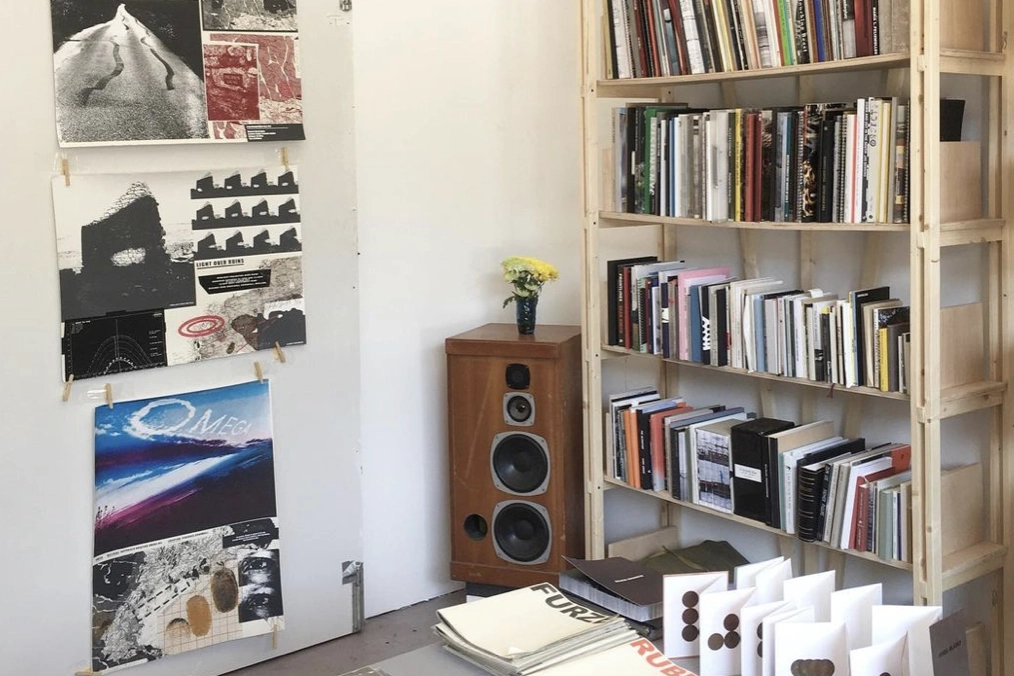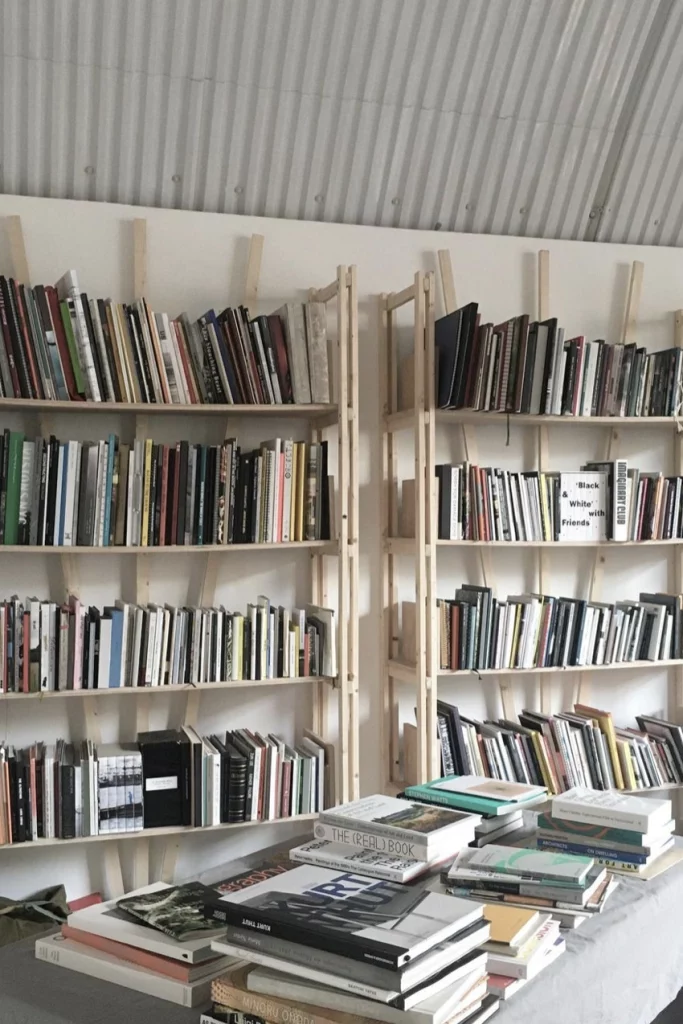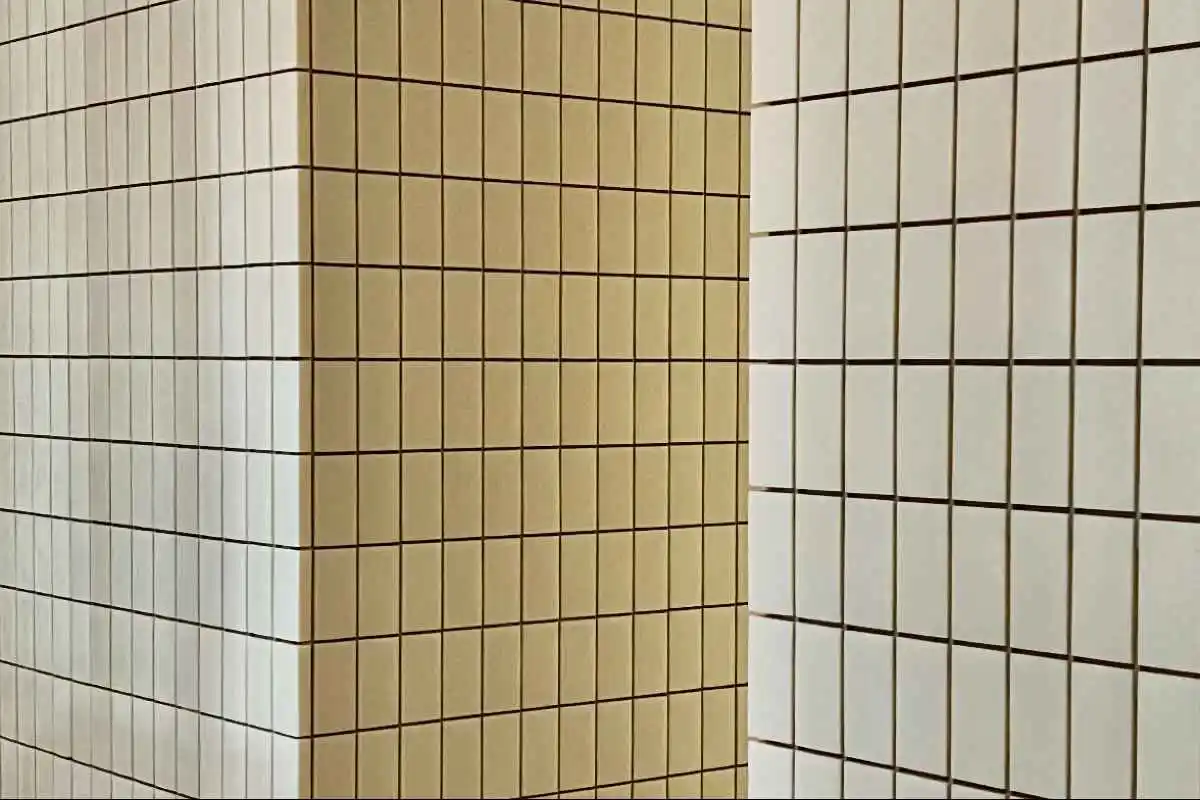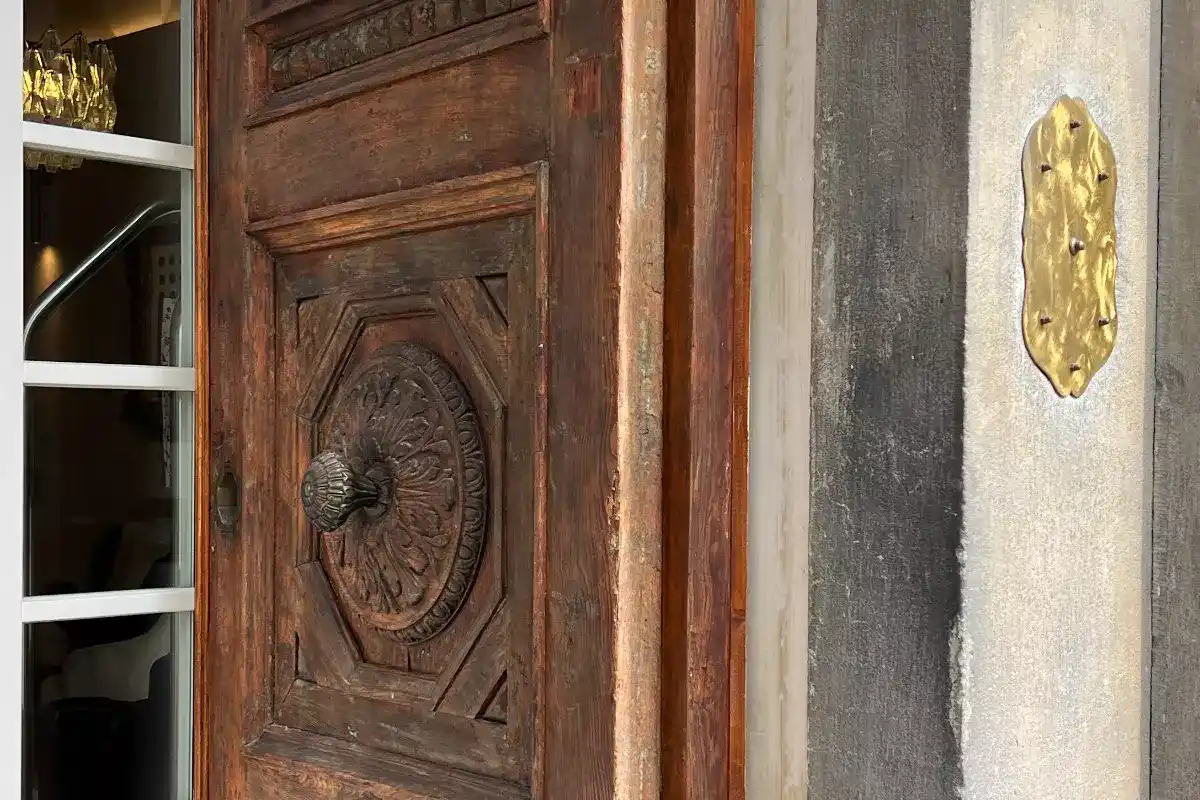Libraries are sustainable spaces as they discourage the mass-production of printed materials whilst encouraging the exposition of printed materials that the public doesn’t have access to
The creation of Biblioteka
The concept for Biblioteka, a public reference library now situated in Peckham, London, originated back in 2015 in Kyiv, Ukraine. The founder, Hilb Velyhorskyi, realized that a gap existed at a local context when it came to finding good art reference material in libraries when his interest in Photography and Artist Publications grew.
It was with his own personal collection of photography publications and a collaboration with Ukrainian photographer Victor Marushchenko, that the founder began to run a weekly event where people could browse these publications. To their surprise, the events they ran were always full. Hilb Velyhorskyi explained that this was when they «really started to play with the idea of what a library could be and what happens inside the library. We started hosting a series of events and music performances and exhibitions to stretch and try to define what happens within the library».
They moved into their first space in 2016 and by 2020 Biblioteka moved to London when the founder moved there himself. The public reference library took over a former gallery space and has since been located on Bellenden Road, in Peckham, London.
The history of a public reference library: Clive Phillpo
Hilb Velyhorskyi explained that the library discourse of Artist Publication really began with Clive Phillpot, a writer, editor, curator and head at the library of the Museum of Modern art in the seventies and eighties. Phillpot initiated the Artist Collection at MoMa and introduced the term of Artist publication. Later collaborating with Printed Matter and Furnace, they launched the movement of Artists working with books as an art from.
Biblioteka founder Hilb Velyhorskyi further added that the move to London was needed because it’s where conversation around libraries started.
Libraries’ identity crisis: digital vs physical
With the rise of the internet and the growing space allocated to digital publications, there has been conversations surrounding the need for public libraries. When exploring what the public reference library space could offer, the founder of Biblioteka found that «there is a big conceptual side to it, which basically deals with the notion of Library itself».
Velyhorskyi further explained «one of my claims is that today a lot of libraries exist in what I call a libraries identity crisis. Since the occurrence of the internet libraries have lost the monopoly of being the only repository of knowledge and somehow, I see it that this loss of monopoly is a liberation because all of sudden libraries don’t have to carry the weight of being the only access point to knowledge and the information which opens up this whole freedom of endless opportunities».
With this in mind, the founder further explored the space that Libraries represent. He concluded that «libraries are first and foremost a space and it’s a space for people before it is a space for books». Velyhorskyi clearly stated that Biblioteka doesn’t sell anything and they are founded on a conventional idea of a library.
The curation of publications: The Photobook Show UK
Although Biblioketa was originally focused on Photography publications, the curation of the public reference library expanded to include other artistic publications. Biblioteka is now home to a large Photography collection, ten years of archive of a photography project called The Photobook Show UK, a selection of seventies, eighties and nineties art magazines as well books about Theory and other printed materials concerning Art, Architecture and Design.
The founder clarified that the Library is more visual than textual and that they are trying «not to be too rigid about what the books are as there is a whole variety of things and a whole variety of art movements». He further added that they make the effort to include publications «which are conventionally not represented within the library context».
A conversation with the public: Bookraiser
Biblioteka is host to many physical publications but is also a space for the public to explore, engage, challenge and inquire about the Art, Architecture and Design discourse and interact and influence the library space itself. Events, talks and conversations are often organized in this Library as a means to create a space where underrepresented or unusual discourses can be voiced and seen.
Velyhorskyi recalled an event Biblioteka did in the summer of 2022 called Bookraiser. It was a music event with DJs organized in collaboration with the Institute of Contemporary Art. Entry tickets were free but visitors had to bring a book of their choice. «We defined the book they could bring as only images or only text or anything in between but the key factor was that it had to be meaningful to them».
Biblioteka is a space curated for critical discussions where visitors, publishers and artists alike can engage in meaningful interactions in a space that is designed to encourage curiosity and imagination. «We are open to the public coming in and proposing stuff. We want to encourage you to forget about the restrictions typically associated with Libraries».
A space to solve the climate crisis
Libraries are at their essence sustainable spaces as they discourage the mass-production of printed materials whilst encouraging the exposition of printed materials that the public doesn’t have access to in a generic bookshop or space.
The Ukrainian founder believes that the space they have created encourages critical discussions such as the topic of the Climate Crisis. «The climate crisis and waste and all of these problems can be solved through imagining a different world with a different set of systems and relationships between people. Libraries provide a space for that imagination».
Studio Spaces: Biblioteka
Biblioteka is host to nine studio spaces that artists occupy all year around. This set-up encourages the flow of conversation between the Library and the Artists. Artists are influenced by the curation of the Library.
The founder reflected that «because the artists have access to the library and it feeds into the research that they do, which feeds into their practice».
The future of Biblioteka
Velyhorskyi hopes to design and construct a building that will host a much larger collection of printed materials they can share with the public. Their wish is to continue to play with the space that Libraries offer. «We want to explore how a Library can be different architecturally. In terms of collection and in terms of program and then it’s about creating this high-quality experience both in direct material experience of the space and Furniture but also a fine collection of books».
Humanitarian effort at Biblioteka: helping Ukraine
When the war broke out in Ukraine, the people at Biblioteka asked themselves how they could have a material impact that would directly affect the situation. As a space that was founded in Ukraine, and a situation that has a direct personal impact on the founder, it was evident that Biblioteka would become a center for humanitarian efforts to support Ukraine in its current crisis.
«It might be small, but it’s a direct measurable tangible contribution to resolving certain issues. And so basically our humanitarian effort is focused on medical aid supplies». The effort is led by Valentin Rajenkov and Mariia Pastukh.
Biblioteka
Founded by Hilb Velyhosrkyi in Kyiv, Ukraine in 2016 and later established in 2020 in Peckham on Unit 6 Bellenden Road Business Centre, SE15 4RF, London. Biblioteka is a public reference library that specializes in creating a space for critical discussions, imagination and underrepresented discourses as well as curating photography, art, design and architecture printed materials for the public.




















